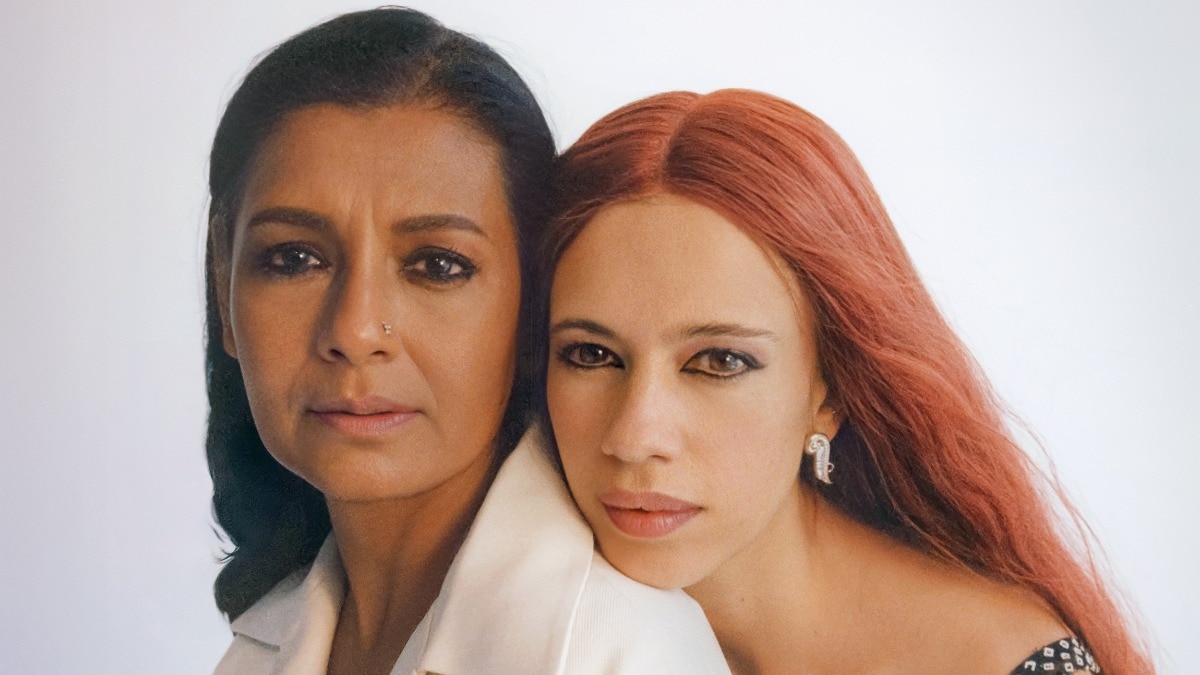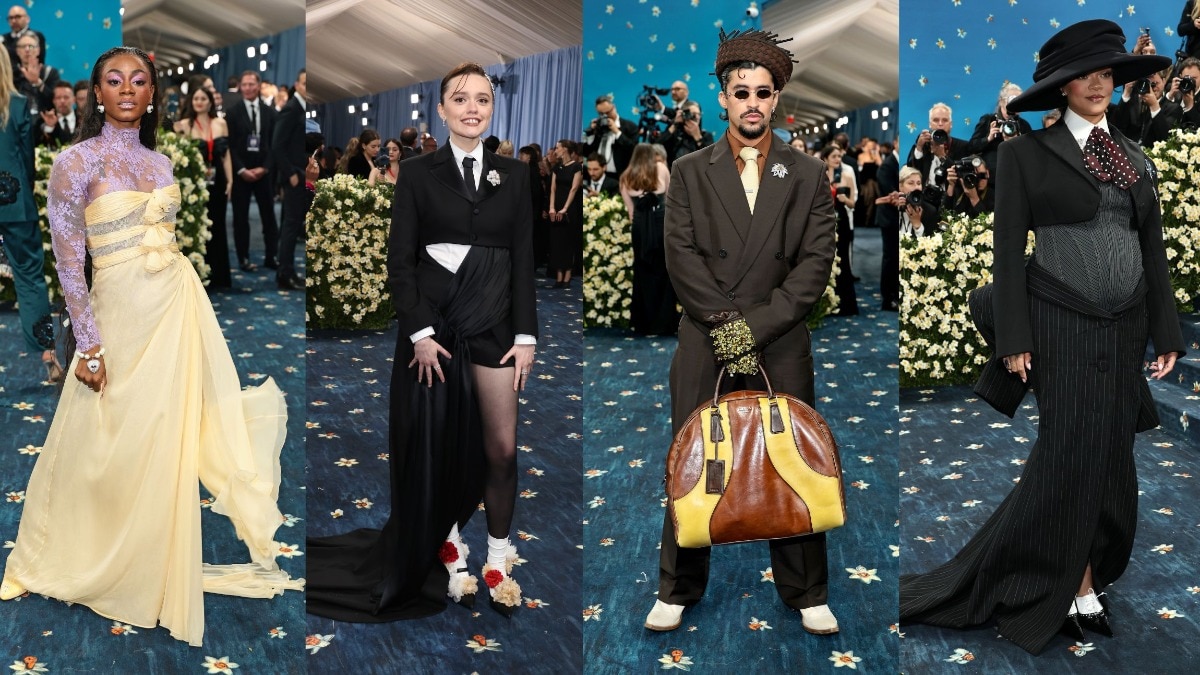For Deepak Chopra, the path toward manifesting the best for you begins with spirituality
The author and spiritual guru speaks to Bazaar India about living a truly abundant life, and how to create it.


Continuing to transform people by changing their thoughts about health for the better, Deepak Chopra is known around the world as one of the best global leaders when it comes to the field of mind-body medicine. Be it his talks, books, etc, he has played an instrumental role towards letting us know about the bond that exists between our body, mind, spirit, and healing.
The author and spiritual guru Deepak Chopra, speaks to Bazaar India where he reveals how to live your best life, creating abundance in their lives, how to improve one's karma, and much more.

Harper’s Bazaar: What, according to you, is the definition of wealth?
Deepak Chopra: “Wealth is a state of consciousness, where you have access to abundance because you have access to the source of all experience, which we call ‘pure awareness’. Pure awareness is a field of infinite possibilities. Wealth, as a state of consciousness, assumes that abundance is infinite—and not based on belief, which is a cover-up for insecurity. When we tap into pure awareness, or the soul or the domain of experience where everything is inseparably one, then that is infinite abundance.
I wrote Abundance: The Inner Path to Wealth (Penguin Random House) because I was once listening to Bob Marley, and he had said this important quote: ‘Some people are so poor, all they have is money’. I thought that was a very good place to take off from, because a lot of people confuse their net worth with their self-worth. And that leads to a lot of confusion over what is abundance.
Of course, money is a human construct to help exchange value. But abundance, on the other hand, also includes feeling secure, safe, loved, a sense of belonging, creative ideas, insight, intuition, imagination, higher consciousness, and transcendence.
Abundance is much more than confusing it with just money, which is about 12 per cent of your daily happiness experience.”

HB: What are the biggest blocks that people have when it comes to creating abundance in their lives?
DC: “The blocks are, simply put, the hypnosis of social and religious or spiritual conditioning. Religious institutions have built huge cathedrals around poverty, the vows of poverty, chastity, and so on. And there is a lot of guilt around physical pleasures. And yet, if you look at the Vedanta, which is the basis of everything that we supposedly do in India, we believe in Dharma (moral values), Kama (love and pleasure), Artha (material success), and Moksha (self-actualisation)... Here, it is Kama or sensual delight, and not Karma (action/deed). Moksha is the freedom from the conditioned, bamboozled mind, which is under the hypnosis of social conditioning.”

HB: And how can one overcome these blocks—and scarcity mentality?
DC: “First of all, realise that those who are born in circumstances of poverty will have a scarcity mentality, unless they address it for the rest of their life. I have known billionaires who were either adopted or came from orphanages, and achieved great success. But they still have scarcity consciousness—they will not tip a waiter or skimp on little things.
These days, everybody is talking about mindfulness, it’s almost become trendy. But if you look at the traditions of meditation, including vipasana, inquiry, reflection, contemplation, and even tantric rituals that incorporate Mantra, Yantra, Tantra...if you look at the various bodies of literature, they tapped into the secret of going beyond the conditioned mind. Because every doubt that we have is based on trauma, or some experience in the past.
I was in Switzerland for Davos 2022, and I caught up with a friend who used to drive me around 30 years ago. His family were multi-millionaires, and his mother was a Holocaust victim. Now, even though every night we were at fancy restaurants, she would steal cheese and little trinkets because she couldn’t get over her poverty consciousness.
How do we get over poverty consciousness? It’s not a simple thing. First, you have to reflect on it by accessing the domain of your awareness, which is beyond your mind. You know, everybody says ‘think positive’, but that’s a very stressful thing to do. I mean, you can be exasperatingly positive, and end up creating stress for yourself and others.
You can’t solve this way of thinking just in the mind—the mind will always be constricted because it’s conditioned, as soon as you’re born... by your parents, religion, ancestors, economic status, even the weather. The conditioning goes back to the dawn of humans, too!
It’s so complicated that you can’t solve it with the mind, because the mind itself is the one that created the problem. You have to go past the mind. And that’s where these amazing traditions of yoga (my new book Living in the Light is on the totality of yoga) come in—with its depth, all the social-emotional intelligence, withdrawal of the senses, and so much more than we understand. You tap into the ultimate reality, which is not your mind, it’s past the secret passages...a domain of awareness with infinite creativity. And so, the answer to scarcity consciousness is creativity.”

HB: There’s a lot of emphasis on affirmations these days. What are your views on them?
DC: “Affirmations don’t usually work because they’re at the level of the mind, and the mind is always conflicted, divided, doubtful, and conditioned. So, generally speaking, affirmations are not effective unless they are incorporated as sankalp which is not a specific technique, but multiple techniques for quieting the mind and reaching an awareness of the mind, because the awareness of the mind is not the mind.
There’s the mind and then there is the awareness of the mind. And right at that junction point between the unmanifest and the manifest is where you introduce the affirmations. Don’t underestimate the power of the ritual, the mantra, or the visual—these are all to give you a multi-sensory experience in consciousness. That is the only way to use that affirmation. Another thing is to do affirmation or intention just before you’re sleeping, or in yog nidra, for it organises its own fulfilment. When you go beyond the level of thought, then yes, affirmations work.”
HB: Were you always inclined towards spirituality, even as a young boy?
DC: “In a way I was... My father was a cardiologist, and I was brought up in a Catholic school in Delhi. But my mother was very aware and familiar with mythical stories, and she would sing them to my little brother and me and tell us stories before we slept, leaving it right at the cliffhanger. She would say, ‘Complete the story by tomorrow, make it a love story, and make it a happy ending’. So accidentally, we learned a lot of interesting mythology. Mythology takes you beyond the ordinary mind. All entertainment in the world today—Bollywood or Hollywood—is dominated by it, because its origins are in mythology. Beyond the mundane everyday, conditioned mind, is mythology. The themes don’t change, but also the themes have embodied within them what Joseph Campbell or Abraham Maslow, or the great Indian seers were talking about—that you magnify your power of intention.”
HB: How can we improve our karma?
DC: “Again, karma is a word that has now become a part of our vocabulary in the English dictionary. And it’s led to many misconceptions about what karma actually is. Karma is not only past experiences, but also how you interpret those past experiences. If I asked you right now to close your eyes and do nothing, in a few minutes, you will become aware that you’re having thoughts. So somebody inside you or wherever is having a conversation with themselves all the time, and most of the time, you don’t notice it, but it never stops. In English, we call it the internal dialogue, the self is speaking to the self. But actually, it is reflecting karma. Every thought is going from a past experience and its interpretation of a possible future desire. When we apply the correct techniques of contemplative traditions—and they exist—they create infinite abundance.”
HB: How can we make all our wishes come true?
DC: “The only wish you should have is that all your wishes come true. And then you have to step into the unknown, not the known, because the known is the prison of the past. You walk into the unknown with an attitude of carefree-ness, and surrender to the infinite that is you, that is formless.”










